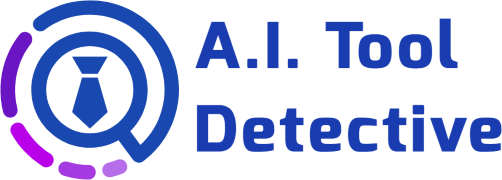How Positive Thinking can definitely help You Recover from Setbacks
Life is frequently enough unpredictable, filled with ups and downs, and setbacks can happen to anyone at any time. However, how we respond to these challenges can considerably affect our recovery and overall happiness. This is where positive thinking comes into play. Positive thinking not only fosters resilience but also empowers individuals to bounce back from adversity with renewed vigor. In this article, we’ll explore how positive thinking can aid your recovery from setbacks, including practical tips, benefits, and compelling case studies.
The Power of Positive Thinking
Positive thinking refers to a mental and emotional attitude that focuses on the luminous side of life and expects positive outcomes. This state of mind helps you cope better with hardships, reduces stress, and promotes overall health. With the right mindset, individuals can transform setbacks into opportunities for growth.
Benefits of Positive Thinking
- Enhanced Resilience: embracing optimism helps you build emotional strength, making you more adaptable when faced with challenges.
- Improved Outlook: Positive thinkers tend to have a more upbeat viewpoint on life, leading to better mental health.
- Increased Motivation: A positive mindset fuels motivation, encouraging proactive steps toward overcoming challenges.
- Better Relationships: Positivity fosters healthier interactions, enabling you to build a strong support network during tough times.
- Physical Health Benefits: Studies show a correlation between a positive attitude and various health benefits, including lower stress levels and improved cardiovascular health.
How Positive Thinking Facilitates Recovery from Setbacks
Facing a setback can trigger feelings of disappointment, despair, and self-doubt. positive thinking can help counteract these negative emotions by shifting your focus toward potential solutions and growth opportunities. Here’s how:
1. changing Your Perspective
One of the primary benefits of positive thinking is the ability to view challenges from a new light. When you can see setbacks as temporary obstacles rather than permanent failures, you open yourself up to the possibility of recovery. This shift in perspective is crucial for emotional healing.
2.Cultivating a Growth Mindset
A growth mindset, popularized by psychologist Carol Dweck, emphasizes that abilities can be developed through commitment and hard work. By adopting this attitude, you are more likely to view setbacks as learning experiences, which can motivate you to try again.
3. Empowering Self-Talk
The way you communicate with yourself has a profound impact on your emotions and actions. Replacing self-doubt with empowering affirmations can generate a sense of control and confidence.For example, rather of saying, “I can’t do this,” try, “I will learn from this experience and improve.”
4. Building a support Network
Surrounding yourself with positive, supportive individuals can enhance your optimism and resilience. Sharing your feelings and experiences with trustworthy friends or family members can provide new insights and encouragement.
Practical Tips for Cultivating Positive Thinking
Here are some practical strategies to integrate positive thinking into your everyday life, especially in times of recovery:
- Practice Gratitude: Keep a journal to write down things you are grateful for.Focusing on positive aspects helps shift your mindset.
- Engage in Positive Affirmations: Daily affirmations can boost your confidence and reinforce your positive outlook.
- Limit Negative Media Consumption: Be mindful of the content you consume, as negative news can impact your mood and overall positivity.
- Surround Yourself with positive Influences: Spend time with people who uplift you and encourage a positive outlook.
- Mindfulness and Meditation: Practicing mindfulness can definitely help keep you centered, reducing stress and enhancing your overall perspective.
Case Studies: Real-Life Examples of Resilience
To illustrate the profound impact of positive thinking, here are a few case studies of individuals who have turned setbacks into comebacks:
Example 1: J.K. Rowling
The author of the Harry Potter series faced numerous rejections before finally publishing her first book. Despite her struggles with depression, Rowling maintained a positive outlook and believed in her story. Her perseverance, fueled by positive thinking, led to her amazing success.
Example 2: Thomas Edison
Inventor Thomas Edison is known for his famous quote, “I have not failed. I’ve just found 10,000 ways that won’t work.” After numerous failed attempts to invent the light bulb, his unwavering positive thinking ultimately led to success.
Personal Experience of Positive Thinking in Recovery
Many individuals discover the power of positive thinking through their experiences. As a notable example, a friend of mine faced significant setbacks after losing her job unexpectedly. Initially devastated, she began practicing gratitude and positive self-talk. Over time, her mindset shifted, leading her to pursue further education and eventually land a new job in a field she was passionate about. her story emphasizes how positivity can transform despair into opportunity.
Conclusion
Recovering from setbacks is a journey, and while challenges can feel overwhelming at times, positive thinking is a powerful tool that can make all the difference. By fostering a positive mindset, you not only enhance your resilience but also open up new avenues for personal growth and happiness. Implementing practical strategies for positive thinking can create a foundation for recovery, equipping you with the tools needed to face future challenges head-on. Remember, your mindset can change your reality—choose positivity!











